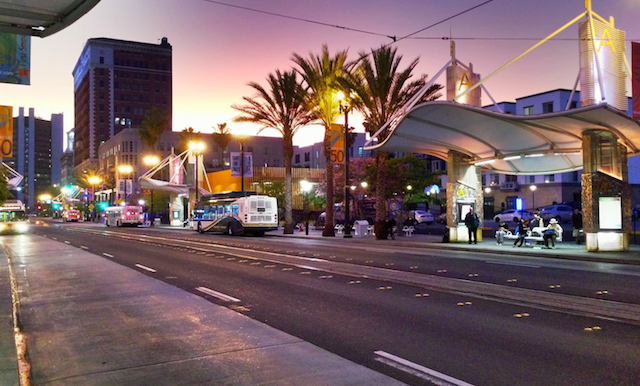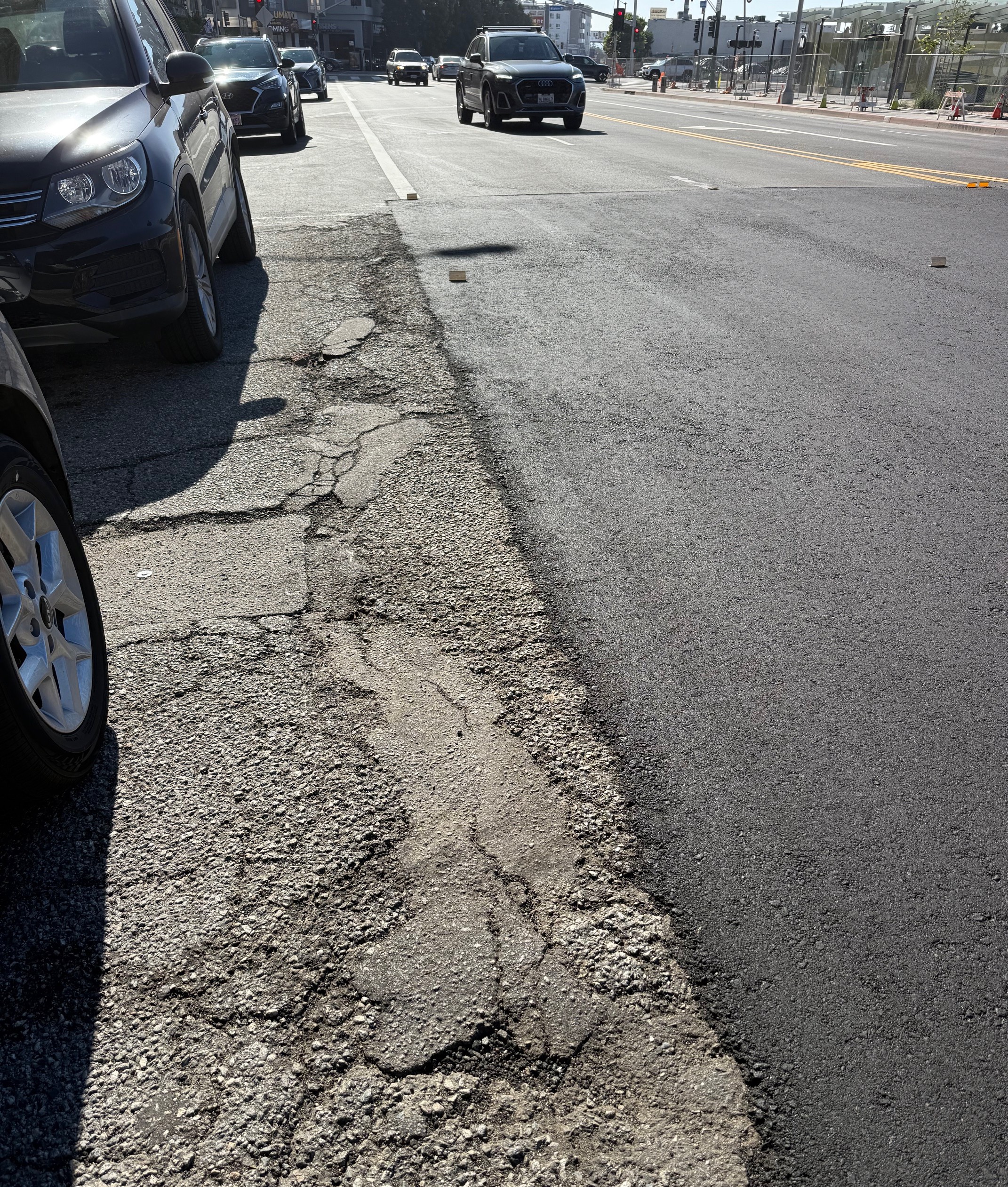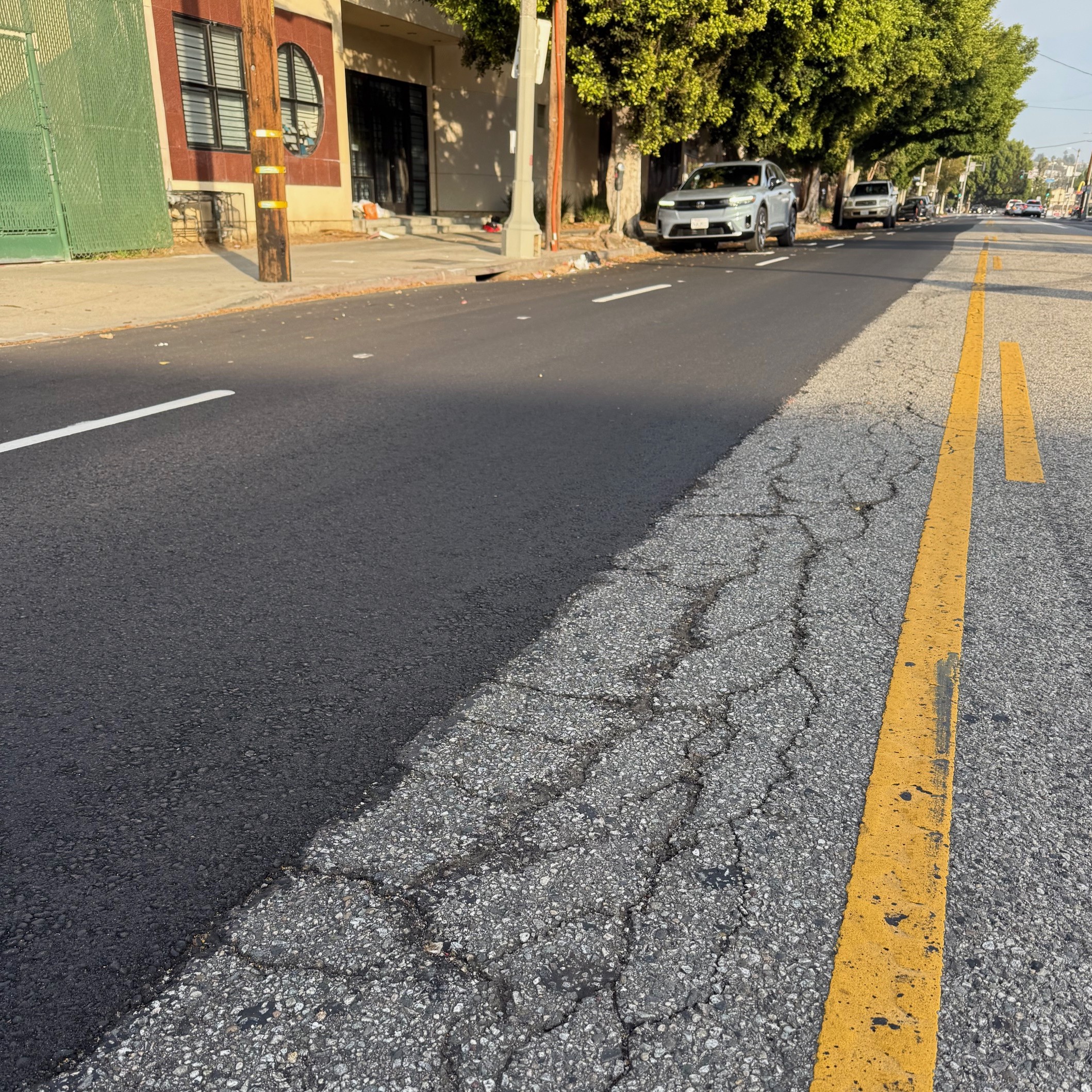Here's the way Cafe Sevilla owner Eric Van den Haute phrased it exactly: "Downtown Long Beach: Do you want a village or do you want a downtown?"
Van den Haute is no stranger to the way in which downtowns run. He has two other locations, one in downtown Riverside and his first in San Diego's Gaslamp District, which was a major player in turning the area from seedy to successful. And the fact that the aforementioned Gaslamp is San Diego's designated Dining & Entertainment District (DED) is contextual strength for Van den Haute's grasp on what works and doesn't because, well, he also sits right in the middle of Downtown Long Beach's DED.
His perspective--shared by fellow Gaslamp innovator and soon-to-be Long Beach stakeholder, David Cohn--is not just randomly thrown out there. There is substantiation to his viewpoint: there is this aura about Downtown Long Beach--even amongst its own citizens if you regard some of the recent social media commentary about a gay staple moving downtown--that paints it as some downtrodden, undesirable mess.
But has this perception been promulgated by the Old Wizards of the Village itself (it was downtrodden and undesirable circa 2001) so well that people just see it that way or is it an actual reality? And do we have blatant tools and ideas right in front of our face that we are either ignoring or being hidden from?
2nd District Councilmember and mayoral hopeful Suja Lowenthal has had a thing with altering downtown's DED for a bit, having been building up the language on new restrictions for the area for years. Often painting a picture of reducing friction between businesses and residents due to entertainment, Lowenthal seems set at reducing anything which caused noise.
She recently succeeded in passing an ordinance that halts the issuance of business licenses to AB48s, or establishments that serve beer, wine, and spirits but no food.
It is a change of tactics from Lowenthal's previous efforts at addressing noise abatement downtown. In 2011, she suggested an entire elimination of rooftop and patio entertainment while requiring that all doors and windows be closed should entertainment be occurring inside, much to the chagrin of several business owners after holding a meeting with them in July of that year. After attempting to push through the efforts in October, it went back to the drawing board.
Finally, this August, she formally submitted her first draft of her proposal on the Council agenda. Years of developing Draconian measures turned out to create… More Draconian measures: She proposed a one-year moratorium on all new entertainment permits throughout the entirety of the downtown DED.
Oh, wait, not a moratorium but an "interim ordinance with a cap"… By which I mean, a jargon-ridden moratorium.
You got it: Zip. Zilch. Nada entertainment permits. Mind you, this is after spots like The Federal Bar, Beachwood, and Congregation Ale House have aided in bringing in businesses like… Fed Bar, Beachwood, and Congy: spaces that revitalized downtown and--heaven forbid--they would like to bring in a band to an entertainment district. (The irony: Fed Bar is a restaurant/venue as they plan on using the basement for concerts; thankfully their upcoming September 17 entertainment permit hearing didn't conflict with Lownethal's clean-up.)
Her justification? The complaints received from residents in regard to two poorly operated businesses, Cohiba and Lush, both now defunct.
Intriguingly, noise complaint data acquired had shown that the area never really arose until the Promenade began offering residential spaces. What this points to is a possible problem of correspondence between the city and developers, ultimately lacking the requirement for noise mitigating factors.
Janet Ballantyne, a downtown resident of the Promenade Walk Condominums at 133 Promenade, shares this feeling that no factors were put forth in requiring construction to have a direct hand in noise mitigation.
"It's not an issue of the type of business they have," Ballantyne said. "It's a mutual issue between businesses and the new homes: their insulation isn't good and my building's insulation isn't good. So I have no idea what barring businesses who don't serve food has to do with anything. Food or no food has nothing to do with noise--look at [the restaurant] Allegria."
Cohn then echoes Ballantyne.
"As residences began being developed in the Gaslamp," Cohn said, "we brought to developers an enormous amount of requirements--we even made some put in triple-paned windows, caulking standards, and the sort."
And even more bluntly, Cohn notes that residents--particularly those who have moved into developments post-2005, when the DED was created in downtown--knew what they were precisely getting into as they signed their rental, leasing, or mortgage contracts with the explicit knowledge that they were going to live in a DED.
For example, residents--including Ballantyne--in 133 Promenade are required to sign a statement knowing so. But even beyond signing a direct acknowledgement is the fact that one but has to look around: with multiple mixed-use buildings, the development of the now-complete Promenade, and business along Pine finally growing, it is difficult to believe that no one knew the implications of what they were getting into.
And to be frank, if I know Long Beach as well as I think I know Long Beach, no one in their right mind living downtown would complain about the noise of business unless it were excessive to the point of being pervasive.
"I signed on knowing exactly what I was getting into," Ballantyne said. "However, I didn't know sound would be so invasive that I would clearly--clearly--hear music from 11PM to 2AM every weekend."
Even worse--and something that Cohn was adamant about--is the fact that the city has failed to enforce its tiered conditions, ultimately resulting in bad operations (like Cohiba and Lush) having the ability to continue operating.
"You can't just add another law when you have ones that work perfectly fine already," said Cohn. "I believe… [if] you're not operating correctly, you don't operate at all."
These points become the most painfully obvious in the bafflement that surrounds why--rather than standardizing what is already in existence--we are attempting to add onto something that isn't already being followed.
And it is also this point that makes me question not just Lowenthal's own agenda that, in the words of Van den Haute, is "theme-parking" downtown, but those who supported it. Specifically, the Convention & Visitors Bureau (CVB) that oversees the massively popular convention center, which seemed to be the only entity in the downtown area that even knew of Lownethal's attempt to enact such an "interim ordinance"--even outside of businesses (e.g. Cohn and his downtown eatery Bo Beau) investing millions into the precise area she was enacting prohibitions on.
In a July 18 meeting this year, the CVB's Executive Committee and Board unanimously approved the moratorium--an irony since one would figure that such an organization as the CVB would want a vibrant downtown to attract their conventioneers to…
…or does the CVB want an all-too-perfect, little-boxes-made-of-tickytacky atmosphere that reeks of Disneyland more than a DED?
Questions lead to more questions: Who, precisely, is complaining so loudly, so vehemently within a DED that the councilmember and the city's CVB would unite together to halt the entertainment of its entertainment district? And if it is not actual residents or visitors, who is perpetuating the idea that downtown needs to be softened through business constrictions?
"I never get a complaint saying, 'Oh, Downtown Long Beach, we're never going there!' Never anything along those lines," said Van den Haute. "We now have people--I mean bodies, visiting downtown--they're walking around with freedom and a total sense of safety.
"What does it all come down to?" he continued. "It is this idea--downtown is horrible--it is still anchored in the mind of those who were in charge of the village ten years ago and they don't understand the new times. Of course bad things happen; crowds of people can sometimes have problems. But in Long Beach--instead of making the news for five minutes, solving the problem, and the next morning it's gone--you have one little thing happen--a small group of people--and the whole world needs to stop turning and there needs to be national headlines and we need to have our entire city come to a halt. I simply don't understand."
There are a lotta things Van der Haute could be referring to--the odd, unadvertised "public" meeting between downtown stakeholders and the LBPD regarding a supposed "bash mob" that never occurred; the fact that the CVB has funded $200,000 worth of cameras to be installed downtown and handed over full control of said cameras to the LBPD; or just the simple fact that ten police cars usually show up to the incidence of loitering downtown… He could be alluding to several incidents.
But one thing remains clear: We either A) have an obsession with overtly policing things to such an extent that it is detrimental to what we are trying to achieve economically and socially, or B) we simply don't know how to properly spread our resources.
There is little doubt in my mind, for example, that the many unmonitored liquor stores that disturbingly pervade North Long Beach more than any area of the city would have much rather preferred the cameras than an area which sees thousands of people cross their storefronts per day--but why would the CVB care about a part of the city of which turning into Disneyland would provide them no profit other than philanthropy?
Even when faced with Lownethal's altered language that, instead of a moratorium on entertainment licenses, proposes a six-month ban on the issuance of business licenses to AB48s… We have issues. And we have issues on an ordinance, mind you, that was changed the morning it was to face City Council.
Issues.
The point about policing costs seems moot given there are solutions: Look at the Belmont Business Association, as it receives 100% of the profits gained from parking meters in the Shore. Why not bump up the Downtown Long Beach Association's gathering of parking meter coins and dollars--which sits at 50%--to 100%? I am pretty convinced the DLBA would be willing to put that money towards policing considering its investment in downtown.
The point about what businesses desire and the conflict with residential desires becomes moot given there are solutions: Ignoring the possibility of proposing--like a vast amount of DEDs ranging from the mid-sized Glendale to the far larger Gaslamp--instituting conditional use permits (CUP) that tailor each business's need to a specific request from the city.
It's the ignoring of possibilities that essentially makes the situation deeply irksome--including initially ignoring downtown residences, as Joe Ganem, part of the Downtown Residents Council, noted.
And it points to a disturbing idea that Lowenthal and the CVB seem intent on blanket-laws that want to quiet a place like downtown--a similar sentiment expressed by a downtown resident two years ago.
"In my North Hollywood locations [for The Federal Bar and Bow & Truss]," said The Federal Bar owner and operator Morgan Margolis, "we have CUPs for each--and they are night and day compared to one another despite each business being close to one another. And that's because they have different needs."
"It's not rocket science: develop properly and use your resources and we'll be fine," Ballantyne said. "We absolutely love downtown. Love it. We dine. We shop. I want to live in harmony."
Margolis--who was openly gushing about how well the city has treated him with the opening of his Long Beach location--and Ballantyne echoed what so many are thinking.
And this long, rambling diatribe still leaves me with a post I should have just left to one word: Why?
Councilmember Lownethal's office did not return repeated requests for comments on this article.







